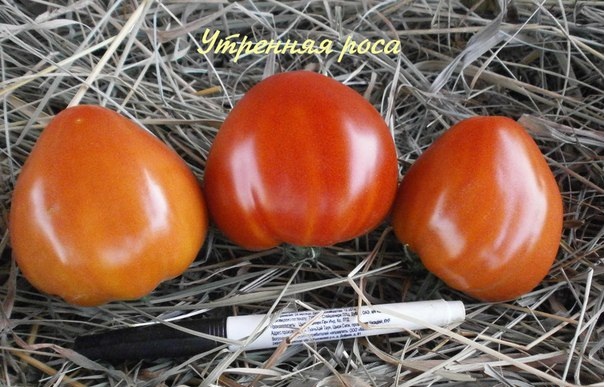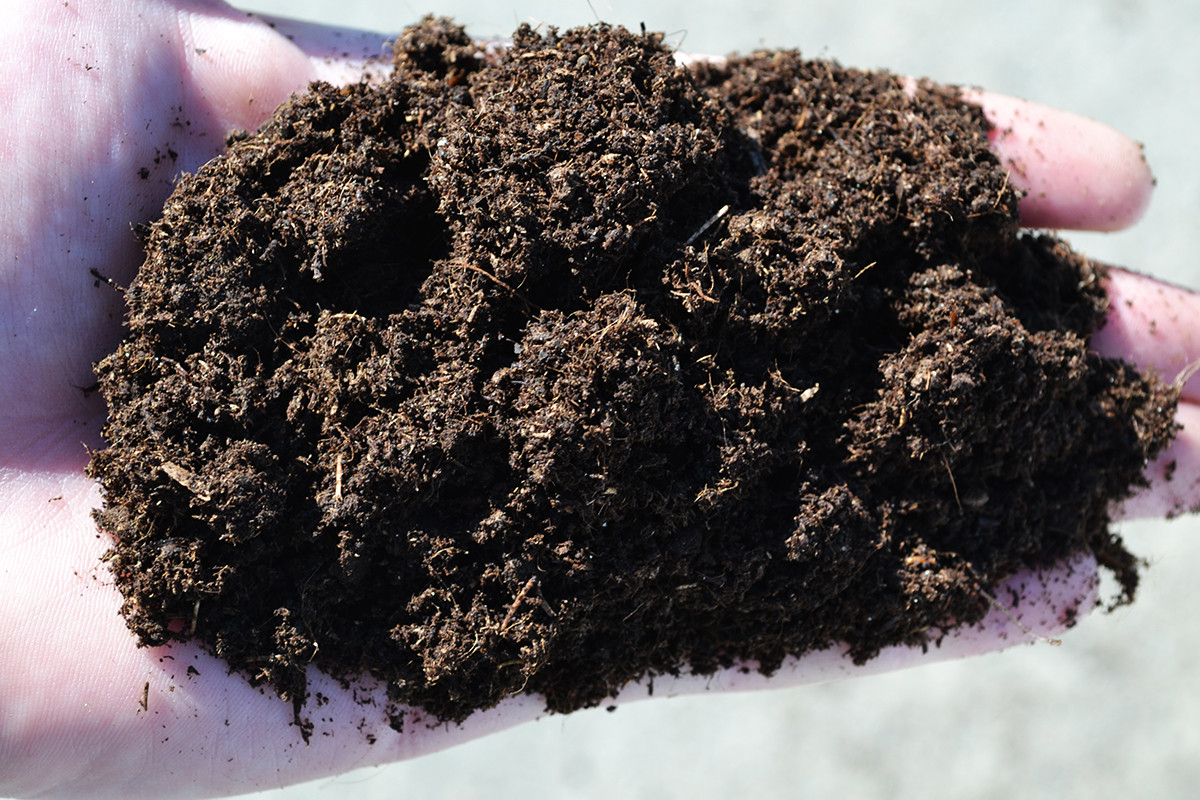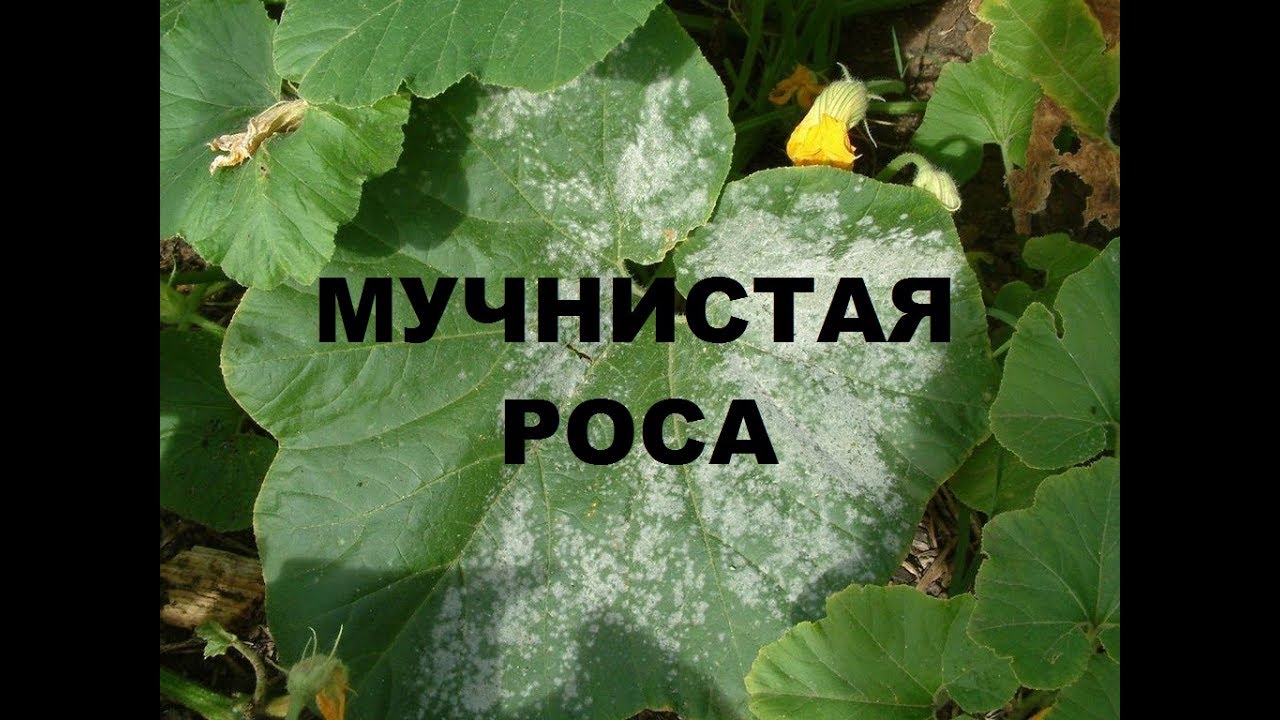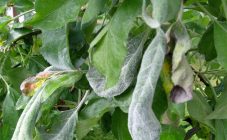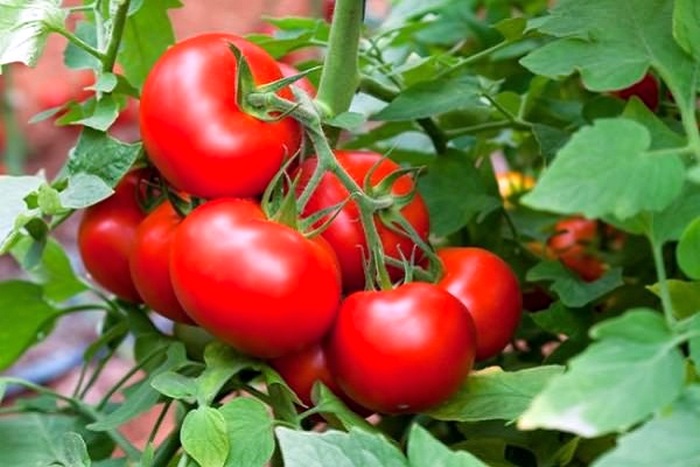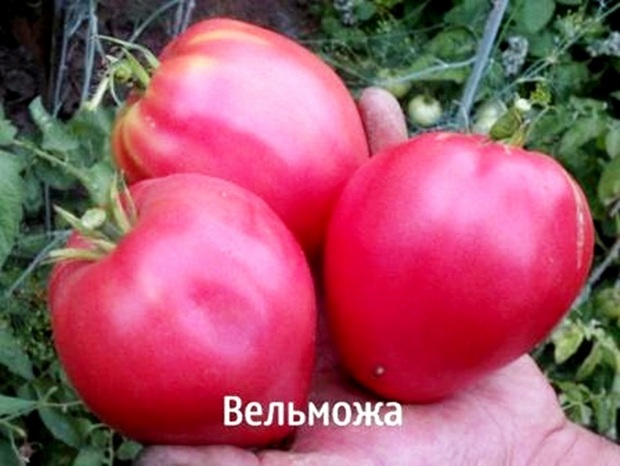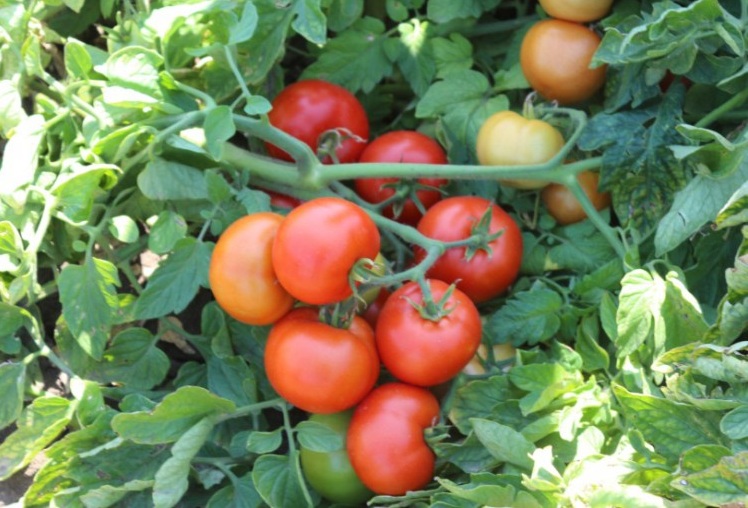Content:
Tomato variety Morning Dew is characterized as high-yielding, tasty and early maturing. Gardeners appreciated the positive qualities of tomatoes, the ease of caring for the plant. Tomato Morning Dew is considered the best early maturing variety.
Variety history
Morning dew is a versatile tomato variety that is suitable for outdoor and greenhouse cultivation. The variety was obtained by the breeders of the regional Pridnestrovian research institute and employees of the agrofirm Aelita LLC.
The variety appeared on the market in 1999. Tomato can be grown in any region of Russia. In the southern regions, where spring comes early, seeds are sown directly into open ground, in the central strip and in the north of the Russian Federation, tomatoes are planted in a garden with pre-grown seedlings.
Description of tomato Morning dew
The characteristics of the vegetable made the variety the best among early ripening tomatoes. Fruits on the bushes will be tied until late autumn. Tomatoes are suitable for fresh consumption, for making sauces, vegetable snacks. Tinning tomatoes is inconvenient due to their large size, but they can be used for pickling in barrels.
Description of the variety and characteristics of the tomato Morning dew:
- A kind of early maturing, indeterminate variety;
- The bushes grow up to 2-2.5 m in height when grown in greenhouses, and 1.5-1.6 m when planting seedlings in open ground;
- The leaves are small, the bushes are not very spreading, take up little space, the color of the leaves is dark green with a purple tint around the edge;
- Ripe tomatoes can be harvested 3.5 months after planting;
- Fruits are large in size, average weight - 200 g, maximum - 350 g;
- The shape of the tomato is heart-shaped, the color is deep red, sometimes with a pink tint;
- 4-5 fruits are formed on one hand. The large weight of tomatoes can bend and break the bush, so be sure to tie the stems to the trellis as the plant grows;
- From 1 sq. m you can get up to 15 kg of harvest, up to 3-4 kg of tomatoes are harvested from 1 bush;
- The pulp is fleshy, juicy in structure, there are few seeds in the chambers. The skin is soft but firm. The taste of ripe tomatoes is slightly sweet, delicate, with sourness;
- Keeping quality is average, tomatoes are dense to the touch, well transported, in a cool dark place they retain their marketable appearance, do not crack;
- The variety rarely gets sick (resistant to bacterial spotting, cladosporia, mosaic) and is attacked by pests.
Agrotechnics
Seedling preparation
To get the expected result from the Morning Dew variety, the characteristics of the culture must be taken into account.
Seeds can be planted directly into open ground or prepared seedlings. Seed material is usually bought annually, since self-collected seeds will not inherit all parental characteristics, the yield will decrease every year.
Instructions for growing seedlings:
- In the last days of March, seeds are sown in containers or separate cups, pots;
- The soil must be nutritious. It is sold ready-made, you can make a soil mixture yourself (soil, humus, peat, sawdust);
- Plant the seeds 1-1.5 cm deep, you can sift the ground from above, "sprinkle" the planting material. The soil that will cover the seeds, it is desirable that it be loose and without lumps. To do this, you can sift it through a sieve;
- After that, the seeds must be watered with warm water.Water very carefully so as not to wash out the seeds, it is better to do this with a spray bottle;
- After moistening the soil, the container with seeds should be placed in a bright place and covered with glass or film. The optimal temperature regime is +25 degrees. If you put it in the shade, then the shoots will appear later, the shoots will stretch upward, become long and weak;
- At the stage of seed germination in the soil, it is necessary that it be moistened. The film should be periodically opened, the seeds should be watered;
- With proper care, seedlings will appear in 10 days. Seeds sprout evenly, the temperature should be reduced to + 18-20 degrees. This temperature regime must be maintained for a week, then again maintained at + 23-25 degrees;
- After the emergence of seedlings, the covering material is removed, the container is placed on a sunny windowsill or table;
- When 2 true leaves are formed on the shoots, the shoots are ready for picking;
- For seating, you need to take plastic or peat cups, individual pots;
- As the seedlings grow, the soil is fed 1 time with mineral fertilizers. You can use a complex fertilizer or preparations Agricola, Kemir;
- 10-14 days before planting tomatoes on the site, the seedlings must be prepared and hardened. To do this, you can take it outside for several hours or put the pots on the balcony. Increase the time spent in the fresh air every day.
Landing in the ground
The foliage is not sprawling, but the bushes grow quite tall. When planting seedlings in open ground, it is important to maintain a distance between bushes of at least 40 cm, between rows - 50-60 cm. Per 1 sq. m should fit about 3 bushes.
The time of planting seedlings on a bed in central Russia is the end of May, in the Urals and in the northern regions - the first days of June.
For planting seedlings, you need to choose well-lit, level areas. It is recommended to prepare the soil in the fall. Organic and mineral fertilizers are introduced into it:
- Rotten manure;
- Compost;
- Humus;
- Wood ash;
- Superphosphates.
Seedlings are planted in pre-prepared holes. If the soil is depleted, then it is necessary to add a nutritious soil mixture to the holes. After planting, the seedlings are well watered. The next watering should be done in a week.
Care rules
Tomatoes Morning dew is an unpretentious plant. For cultivation, you will need to carry out standard care procedures:
- Watering;
- Tying to a trellis;
- Top dressing;
- Stepping out;
- Weed removal;
- Loosening;
- Mulching.
It is better to water tomatoes in the morning or evening, when the sun's rays are not active. It is advisable to prepare water in the evening. It is necessary to water at the root, in the heat it is enough to moisten the soil 2 times a week.
After watering, the site is cleared of weeds, the soil is loosened and mulched. Sawdust, peat can be taken as a mulching material.
For the fruits to be large, the soil must be fertile. For feeding tomatoes, minerals and organics are used. It is important to observe the dosage when applying fertilizers, an overabundance of drugs can harm the plant. The main fertilizer for growing tomatoes is phosphorus, it is found in superphosphates.
During flowering and during fruiting, the land is fed with potassium and phosphorus. Wood ash is used as a potash fertilizer.
Advantages and disadvantages
A universal variety of tomatoes is successfully grown by gardeners in Russia. Advantages of the Morning Dew variety:
- Early ripening;
- Large harvest of large tomatoes;
- Excellent tomato fruit taste;
- Ripe tomatoes do not crack;
- Plant resistance to diseases;
- The possibility of growing seeds in the open field and in the greenhouse;
- The variety tolerates an increase or decrease in temperature well;
- Unpretentious care.
The disadvantages include:
- A trellis for tying a bush is required;
- Not suitable for whole cans.
Growing Morning Dew tomatoes on the site, gardeners are satisfied with the harvest and the taste of vegetables. The ease of care combined with the positive characteristics of the variety made it the leader among early ripening tomatoes.
